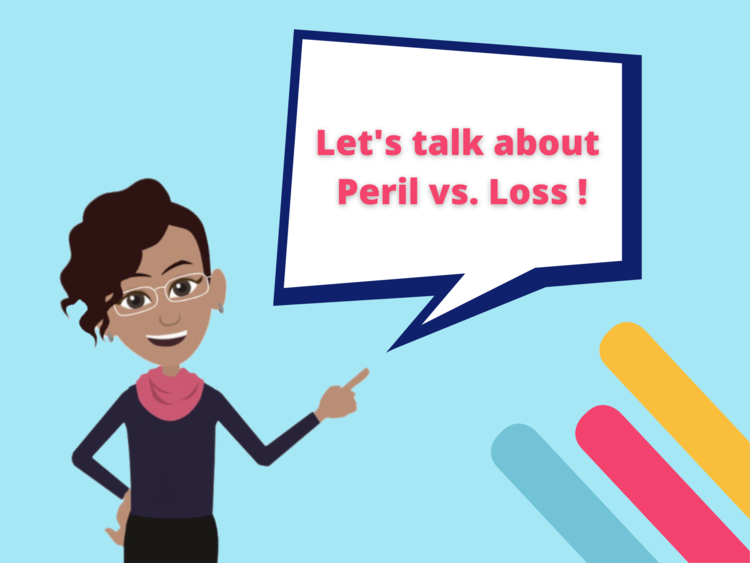Understanding the difference between ‘loss’ and ‘peril’ is a critical for understanding how coverage is triggered in an insurance policy.
What is ‘loss’ in insurance?
In insurance, ‘loss’ is the financial damage one suffers due to an insurable event. Under the terms of a policy, the insured needs to incur a loss in order for them to have a claim for damages.
This could mean a property loss, such as damage as a result of a fire that burned down a house. It can also be a liability loss. A liability loss is the amount that an insured is legally required to pay a third party because of an actual or alleged wrongful act, which may include defence costs.
What is ‘peril’?
‘Peril’ means danger or risk. Is there a dangerous condition present that can cause a loss? A property peril could be the fire that burned down the house. A liability peril could be the wrongful act that led to the third party bringing forth a lawsuit claiming damages.
Insurance companies design entire policies around specific perils. These policies are called ‘named perils’ policies and are typically found under property coverages. Other examples of ‘named perils’ policies include Employment Practices Liability Insurance and Cyber Insurance policies.
Danger leads to loss, and insurance companies offer policies built around dangerous conditions that historically have led to a need for insurance. In addition to fire, perils can include flood, earthquake, or even wrongfully terminating an employee or data compromise.
Buyers need to understand the perils or conditions that can cause a policy to be triggered. This is a critical part of understanding an insurance contract.
What is the distinction between loss and peril?
The critical distinction here is that peril is a factor (wrongful act) or event (fire) that can contribute to a loss or cause a loss. It is not the loss itself.
This distinction is of particularly importance in the case of cyber insurance. Read more about it in this article on ransomware.
In their role, insurance underwriters look at what causes a loss. They look at a risk and determine the likelihood of a loss occurring. An important indication of risk is the perils affecting an organization. These perils can cause the policy to be paid out, commanding a higher premium.
The words’ peril’ and ‘loss’ hold particular importance in the insurance industry. Indeed, ‘loss’ is arguably the most important word in the insurance world. After all, isn’t that the point of insurance? Don’t we all pool our money together for the sheer purpose of accessing those very funds when we experience a loss?

